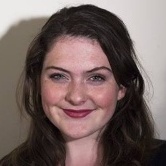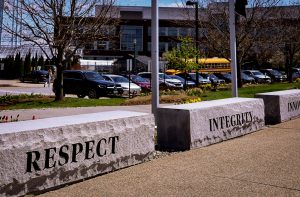Actor talks science
February 10, 2015
Science and communication don’t generally mix — one actor is trying to change that.
Six-time Emmy Award-winning actor Alan Alda was at UVM Feb. 2 to speak to students and faculty about the University’s upcoming involvement with the Communicating Science Program and what it will bring to UVM.
“We need new understanding of how nature works,” Alda said. “Think about it: 100 years later, we are walking around with Einstein in our pockets. Science is our future,” he said.
Inspired by exciting conversations with scientists , the former host of PBS’ “Scientific Frontiers” felt it necessary to somehow bring the “understanding and acceptance of science to the public through communication.”
In 2009, he established the Center for Communicating Science at SUNY Stony Brook in New York.
Alda said that he hopes UVM joins SUNY Stony Brook as the second in a nationwide chain of schools involved in this program.
By changing the way students approach the public while explaining science, Alda said UVM students will be ahead of the competition when applying for jobs.
“Not only will they be great scientists, but they will have a leg up when communicating with their peers,” Alda said.
Elizabeth Bass, director of the Alan Alda Center for Communicating Science, said the relationship between UVM and the program began when Dr. Richard Galbraith, vice president of research at UVM, reached out to her with interest in beginning the program at UVM.
Students such as Alison Denn, who is studying to be a geomorphologist, are particularly interested in the idea of communication within research.
“People develop a stigma against research, so it is easy for there to be a disconnect between scientist and the public,” Denn said.
The big ideas in science need to be put into ‘real talk’ so that everyone, scientists and non-scientists can understand, She said.
“We really need to press the idea of the elevator talk in order to get the public to understand the importance of science” she said.
Some UVM students said they hope that the increase in communication in science will aid in closing the gender gap within STEM subjects.
Senior Lydia Milliken, a mechanical engineer major, said that there are sometimes as few as five girls in some of her classes, and she believes this can be attributed to the lack of communication to girls about what STEM subjects are and what they do for the world.
“There is a lot of research that says that women learn best through storytelling, and you do not find a whole lot of that in STEM subjects,” Milliken said.
“Better communication will change the way women look at the STEM subjects, and as a result, their place in modern society,” he said.







